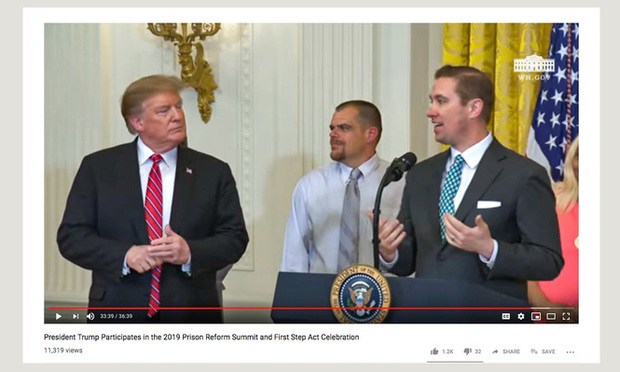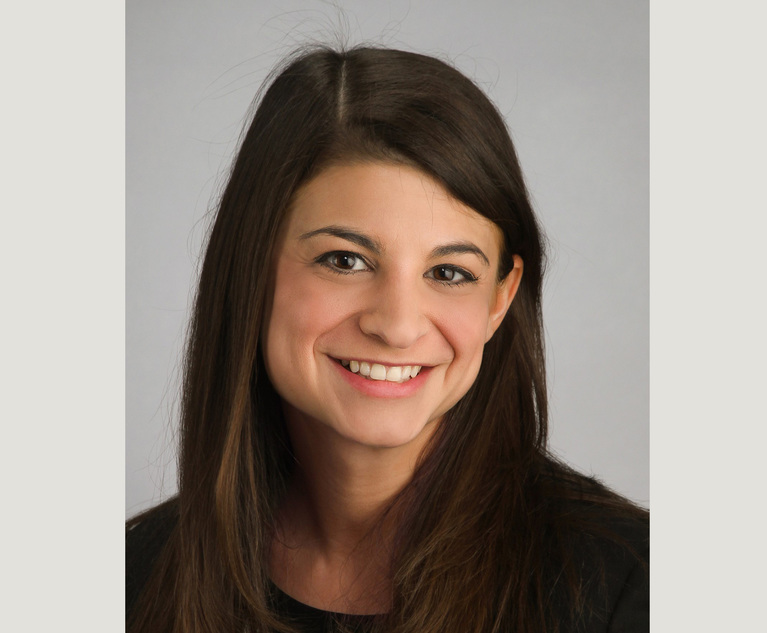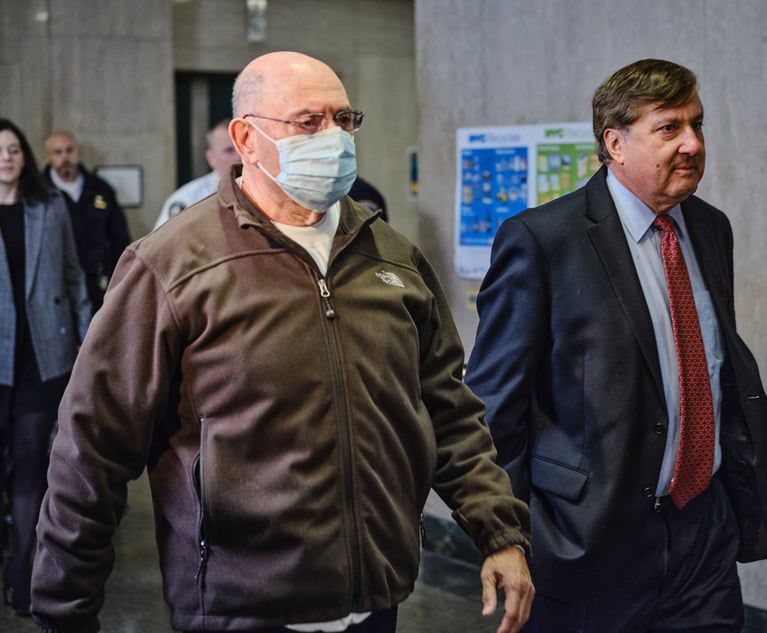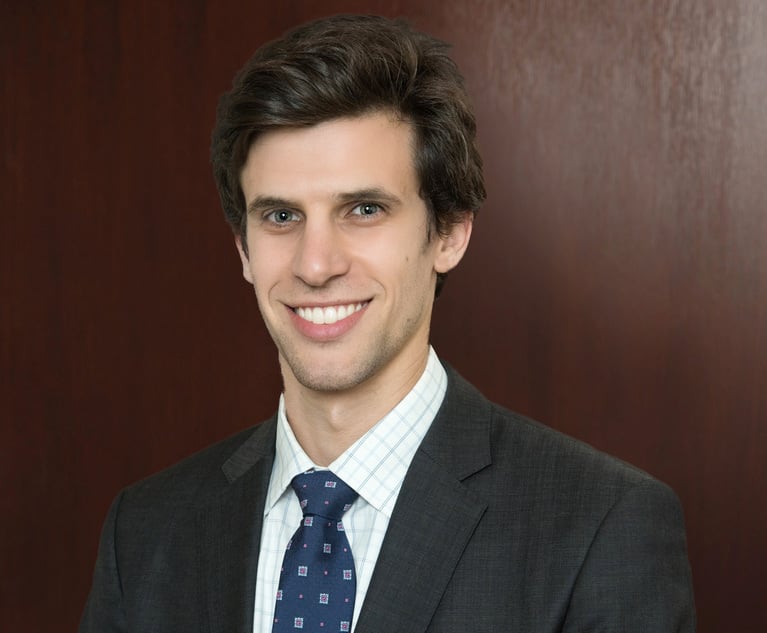Shon Hopwood’s improbable journey from federal inmate to professor at Georgetown University Law Center hit another high this week when President Donald Trump—during a White House celebration Monday—credited the convicted bank robber with helping enact a major federal criminal reform bill.
It was Hopwood’s second big moment at 1600 Pennsylvania Avenue in mere months. He attended the signing of the First Step Act on Dec. 21 and spoke briefly, but the White House held another celebration of its criminal justice reform successes this week because the original bill signing was overshadowed by the partial government shutdown. Hopwood spent 11 years in federal prison, where he was a prolific jailhouse attorney, before going on to law school and the legal academy.

 Georgetown University Law Center professor Shon Hopwood, far right, speaks at a White House celebration of the First Step Act on April 1.
Georgetown University Law Center professor Shon Hopwood, far right, speaks at a White House celebration of the First Step Act on April 1.








